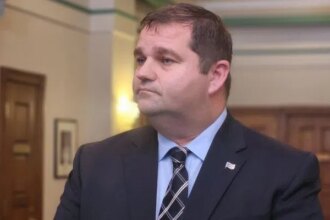A sweeping review of the Dehcho education system has gained strong support from regional leaders across the Northwest Territories, as government officials launch what many are calling a long-overdue examination of structural issues affecting student outcomes in the region.
The territorial government’s initiative comes amid concerning reports of administrative challenges, teacher retention problems, and graduation rate disparities that have plagued the Dehcho Divisional Education Council (DDEC) for several years. These investigations, announced last month by Education Minister R.J. Simpson, represent the most comprehensive assessment of the region’s education system in over a decade.
“We’ve been advocating for this level of attention to our education challenges for years,” said Dehcho First Nations Grand Chief Gladys Norwegian in an exclusive interview. “Our children deserve educational opportunities that honor their cultural heritage while preparing them for future success. These investigations signal that our concerns are finally being heard.”
The review encompasses both financial and operational aspects of the DDEC, which oversees schools in Fort Simpson, Fort Providence, Fort Liard, Wrigley, Nahanni Butte, and Jean Marie River. Education officials from CO24 News have learned that particular focus will be placed on resource allocation, curriculum delivery, and Indigenous language integration.
Data obtained from the Canada News education desk shows graduation rates in Dehcho communities hovering at 56% compared to the territorial average of 71% – a gap that has persisted despite previous intervention attempts.
“This isn’t just about identifying problems,” explained Dr. Sarah Vandenberg, education policy analyst at the University of Alberta. “The NWT government appears committed to finding sustainable solutions that address both immediate concerns and the historical context that has shaped educational outcomes in Indigenous communities.”
According to documents reviewed by CO24 Politics, the investigations will employ a collaborative approach, involving extensive consultation with community members, elders, parents, and educators. This methodology represents a significant shift from previous top-down assessment models.
DDEC superintendent Philippe Brûlot expressed cautious optimism about the process: “We welcome any effort that brings additional resources and attention to the unique challenges our students and educators face. The key will be ensuring that recommendations are followed by meaningful action and sustainable funding.”
The financial aspect of the investigation has drawn particular interest from CO24 Business analysts, who note that education funding formulas in remote northern communities often fail to account for the higher operational costs and specialized resources needed in these regions.
Regional chiefs have emphasized that any solutions must incorporate Indigenous knowledge systems and language revitalization efforts alongside standard curriculum objectives. “Education in our communities isn’t just about academic achievement measured by southern standards,” said Fort Providence Dene Council Chief Xavier Canadien. “It must also strengthen cultural identity and connection to land-based knowledge.”
The NWT Department of Education has committed to releasing preliminary findings by December 2024, with implementation of recommended changes potentially beginning as early as the 2025 academic year. Education Minister Simpson has promised that, unlike previous reviews, this investigation will result in concrete action.
As the World News spotlight increasingly focuses on Indigenous education rights globally, the Dehcho investigations may serve as an important case study in addressing educational inequities in remote Indigenous communities.
The question now facing Dehcho communities and territorial leaders alike: Can this comprehensive review finally bridge the persistent gaps in educational outcomes, or will it join a long history of well-intentioned initiatives that failed to create lasting change?


















